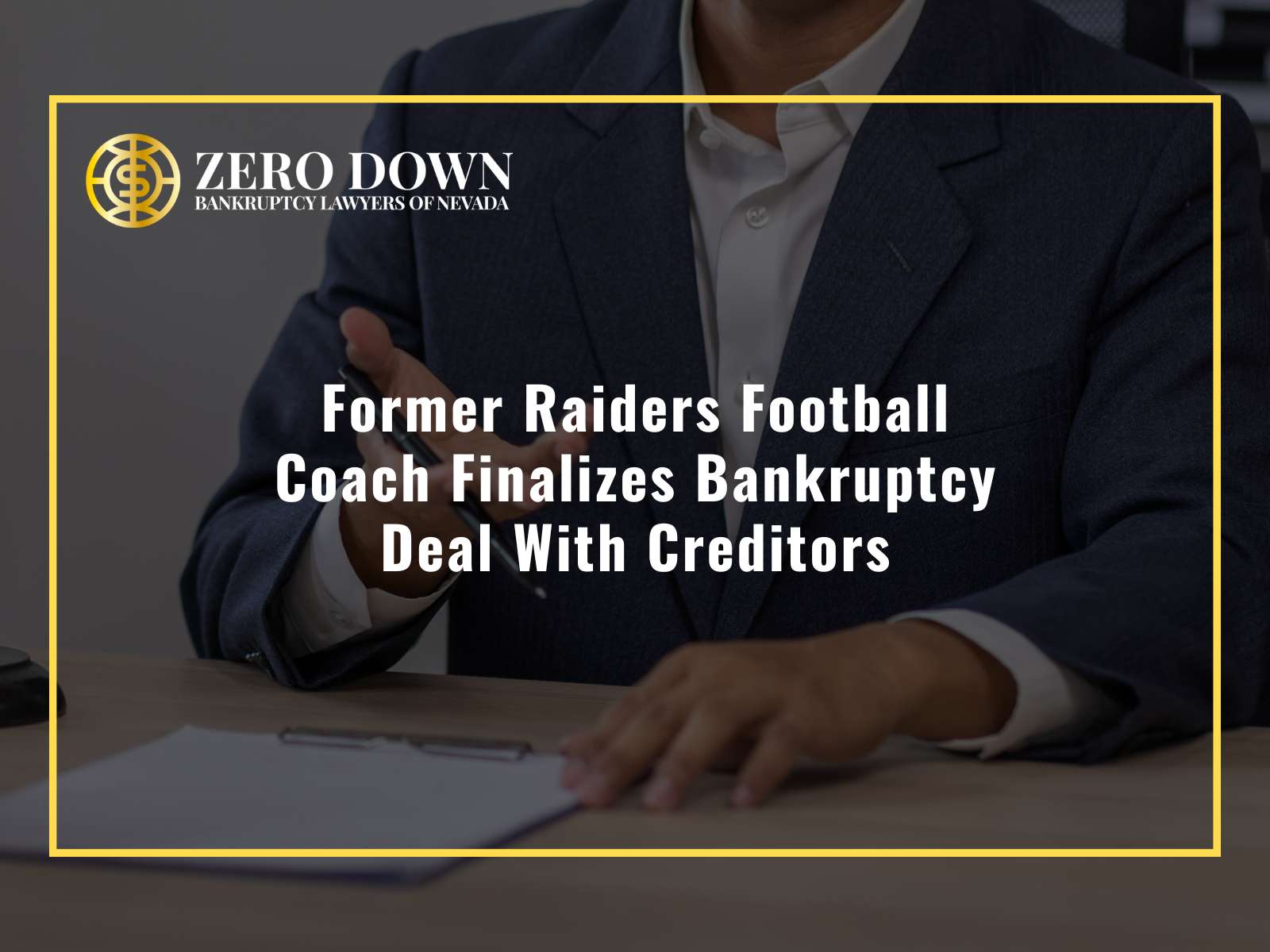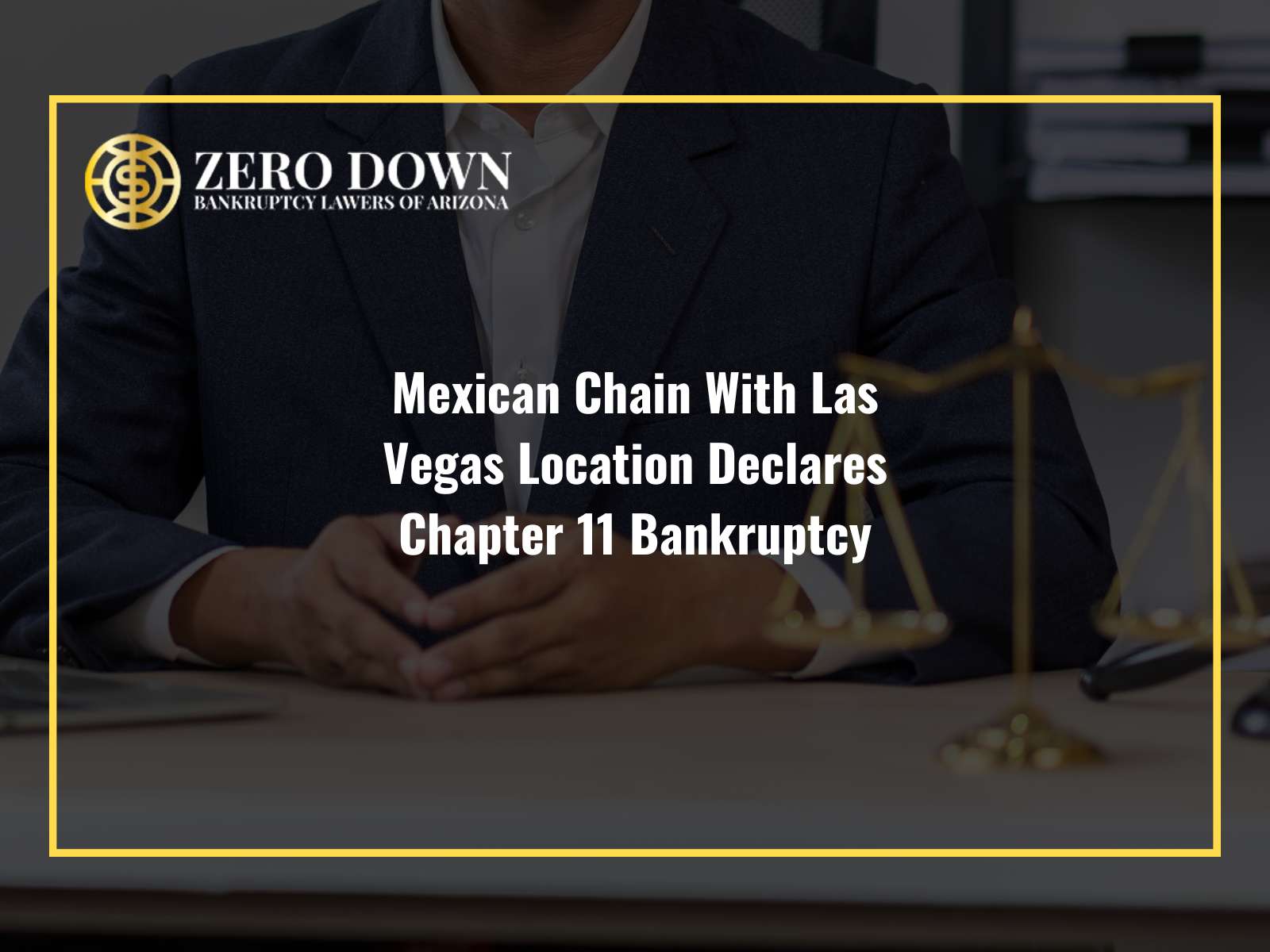File Bankruptcy For No Money Down In Reno, Nevada
Whether you’ve fallen too far behind on your credit card payments, risk repossession of your vehicle or foreclosure of your home, or believe that one of your creditors may soon garnish your wages, filing bankruptcy for bankruptcy in Reno, Nevada can have many protective benefits. Bankruptcy can clear your debts and shield you from creditors in the meantime. Even the simple act of hiring a bankruptcy attorney can restrict the lengths creditors go to pursue your debts. However, filing for bankruptcy is more complicated than many assume, and can come with significant up-front costs. Without some source of excess cash, how is it possible to afford bankruptcy while on the brink of bankruptcy? If you’ve started researching the bankruptcy process yourself, you’ve probably learned that bankruptcy attorneys usually charge their fees up-front, as they can be discharged with other debts by the bankruptcy itself. However, our Reno bankruptcy team offers payment plans that make filing bankruptcy more affordable. To get started with your free phone consultation with one of our experienced Reno bankruptcy attorneys, click here or call 702-842-0700.

Chapter 7 vs. Chapter 13 Attorney’s Fees
Hiring a quality bankruptcy attorney can help ensure that a case proceeds smoothly and is as effective as possible. However, paying for your bankruptcy attorney works much differently in the two main forms of consumer bankruptcy, Chapter 7 and Chapter 13. You should check which forms will be available to you based on income restrictions, prior filing restrictions, etc., before worrying about how you will pay for your attorney’s fees.
Chapter 7 bankruptcy is the most common form of consumer bankruptcy. It is faster and simpler than Chapter 13, which generally means the attorney’s fees are lower. A Chapter 7 bankruptcy can typically be completed within 3 to 6 months. The main obstacle between most debtors and Chapter 7 bankruptcy is income disqualification. A debtor’s income must fall below the state median for their household size or pass the means test to be eligible to file for Chapter 7 bankruptcy. Some debtors also avoid Chapter 7 bankruptcy if their assets are unprotected in a Chapter 7 filing, which puts them at risk of being seized and sold by the bankruptcy trustee. Chapter 7 bankruptcy wipes away almost all types of unsecured debts. Most often, it is used to erase credit cards, medical bills, unpaid utilities, deficiency balances left from repossessions, and more. If a bankruptcy attorney hasn’t yet been paid for their Chapter 7 representation, this debt can also be wiped away by the bankruptcy. That is why most bankruptcy attorneys require full up-front payment before filing your Chapter 7 bankruptcy case. The court filing fee for a Chapter 7 bankruptcy is $338. Debts accrued after the filing date won’t be discharged by Chapter 7 bankruptcy.
Chapter 13 bankruptcy lasts either 3 or 5 years. The commitment is greater on both the debtor’s and the bankruptcy attorney’s part, so you can generally expect Chapter 13 bankruptcy attorney’s fees to be much higher than those of Chapter 7. Instead of proving that they don’t make enough money to pay their bills like in chapter 7, a chapter 13 bankruptcy debtor needs to prove they have sufficient income to pay off mandatory debts. The debtor must be able to pay off bankruptcy legal fees, secured debts, and priority debts within their 3 or 5-year payment plan. Bankruptcy fees, including attorney’s fees, are the first debt to be paid off in the plan. Unsecured debts are only paid to the extent that the debtor’s disposable monthly income allows. Because attorney’s fees can be worked into a Chapter 13 payment plan, Chapter 13 attorneys may be more flexible in how much payment they will accept up-front to file a case. The court filing fee for a Chapter 13 bankruptcy is $313. A Chapter 13 bankruptcy debtor will need approval from the trustee before incurring new debts.
Qualifying for either Chapter 7 or Chapter 13 bankruptcy is much more complicated than can be expressed in a few sentences. If you file under a chapter for which you don’t qualify, your case may be dismissed, which can create a temporary or permanent lapse in the protections from the automatic stay. To make sure that your bankruptcy plans align with your eligibility, click here or call 702-842-0700 to schedule your free consultation with our Reno bankruptcy lawyers.
How Does a Zero-Down Bankruptcy Filing Work?
The key to allowing debtors to pay their attorney’s fees in post-filing installments is splitting the case up, or bifurcating it. The case must be bifurcated after filing because that is the point at which a debtor can begin accruing new debts. To bifurcate a bankruptcy filing, your case will first be filed as a skeleton petition. This petition only contains the “bare bones” of the information necessary to discharge your debts in bankruptcy. The work completed up to this point will technically be pro bono. Your legal fees will be based on work completed after the skeleton filing.
The debts you accrue after a skeleton petition filing aren’t discharged in your bankruptcy, which means they can theoretically be spread out into a payment plan. Our firm offers post-filing payment plans that are payable within 12 months of filing at a 0% interest rate. To see if you’re eligible to file with our post-filing payment option, click here or call 702-842-0700 to schedule your free phone consultation today.
Court Filing Fee Waiver
Whether or not you retain an attorney to file for bankruptcy, you will be liable for court filing fees for whichever chapter you choose. A debtor who can’t afford the court filing fees can submit a filing fee waiver to the court. It is important to note that the court is more likely to accept an application for fee waiver from a pro se bankruptcy debtor than one who presumably had enough money to afford an attorney. The court’s first preference is to have the debtor pay the filing fee in installments. The fee must be paid off in four installments or less, and the fourth installment needs to be paid within 120 days of filing. The debtor must have an income that falls below 150% of the poverty line and not be able to afford the filing fee installments to qualify for a fee waiver. A debtor will need to submit separate applications if they need fee waivers for other bankruptcy fees in their case. If the court denies an application for fee waiver, the debtor will have 48 hours to pay in full or submit the first of their 4 installment payments.
File For Bankruptcy For No Money Down In Reno, Nevada
Bankruptcy can be surprisingly expensive considering it is meant to protect debtors in tricky financial situations. Paying for your legal representation in full before filing may not be possible depending on your circumstances, especially if you are dealing with extra expenses like overdraft fees, interest payments, wage garnishments, and more. Find out at Zero Down Bankruptcy Lawyers of Nevada if you qualify to file for bankruptcy for no money down by contacting us or calling 702-842-0700.

Zero Down Bankruptcy Lawyers
Phone: (702) 842-0700
Email: info@vegaszerodownbankruptcy.com
Las Vegas Office
5552 Ashley Creek St
Las Vegas, NV 89135
North Las Vegas Office
7251 W Lake Mead Blvd
Las Vegas, NV 89128
Henderson
1489 W Warm Springs Rd #110
Henderson, NV 89014







